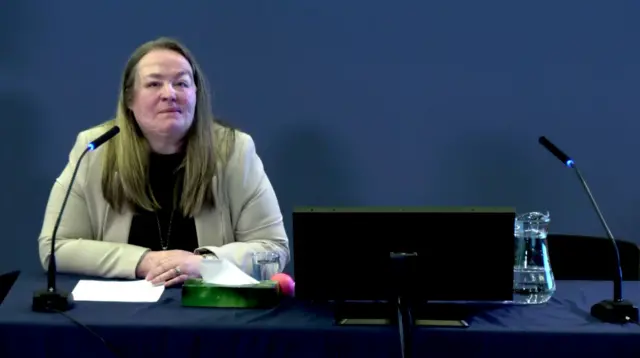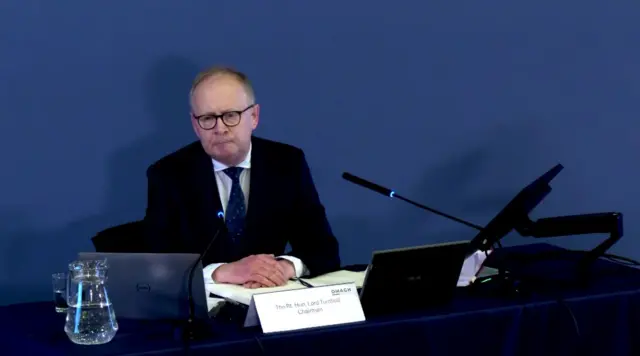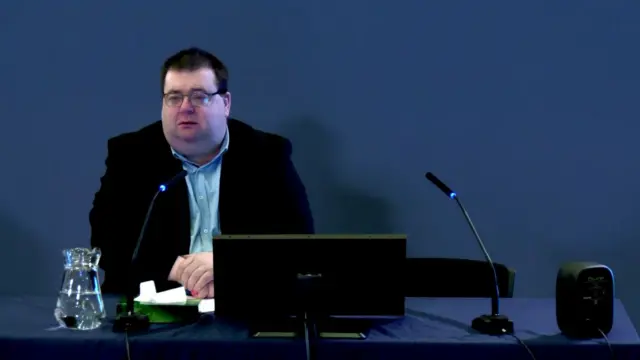'Touch and go'published at 12:12 GMT 12 February
Donna-Marie McGillion says her family were told to prepare for the worst, and she was to be taken to the Royal Victoria Hospital but it was "very touch and go".
She says she had a 20% chance of survival when she arrived at the RVH because of how severe her injuries were.
Once she arrived she was placed in an induced coma where she remained for six weeks.
She says the next thing she recalls was waking up in the intensive care unit, with her family around her bed.
Mrs McGillion says when in the coma she could hear the voices and she always remained calm, but it is just "snippets of memory".
She says she received her last rites on four different occasions during this time.
Mrs McGillion says she owes her life "to the people of ICU".


